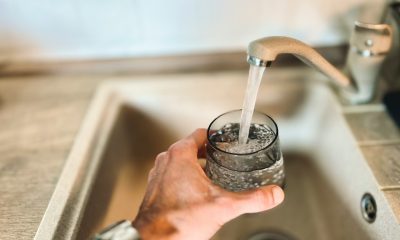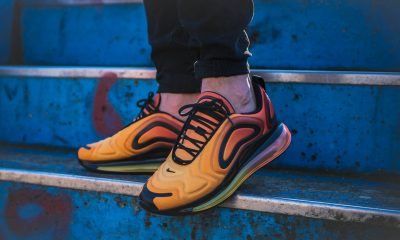Crowdfunding
Students Seek Funds to Launch the MUSA Project into Space
The students from the Tecnológico de Costa Rica (TEC) intend to raise the $30 000 through crowdfunding, on the platform GoGetFunding.com, to launch their research proposal into space. The student venture asserts that any additional funds received after the $30,000 mark will be used to help develop and fund Project MUSA’s flight to the International Space Station (ISS) in 2023.

Students from the Tecnológico de Costa Rica (TEC) are seeking to raise $30,000 to launch their research proposal into space. This is the MUSA Project, which seeks to find -under microgravity conditions- a cure for Panama disease, a disease that threatens banana plantations around the world.
The Orbital Space Technologies (OST) venture -founded by students from different careers-, in partnership with the TEC’s Space Systems Laboratory (SETEC-Lab), seeks to send an experimentation module on a suborbital flight.
The launch is expected to be achieved thanks to the collaboration offered to TEC by the Swedish Space Corporation (SSC), which has a space available at a favorable price in the SubOrbital Express-3 flight, scheduled for October 2022.
With the MUSA Project, TEC students won the sixth edition of the Mission Idea Contest, a global competition dedicated to the application of space technologies, and was recognized as the idea with the greatest potential for international cooperation by the International Academy of Astronautics (IAA).
If you want to find more details about the MUSA project and to read the latest financial news in the world, download for free our companion app.
The space mission is also supported by the Central American Aeronautics and Space Agency (ACAE)
“This project is extremely important on a national level, as it will test the technology needed to carry out Project MUSA aboard the International Space Station in the future. The research seeks to study the behavior of the fungus that causes Panama disease and its antagonist under microgravity conditions. It is a pest that causes losses of up to 80% in banana plantations worldwide, putting at risk the entire banana industry in the region and the people who depend on it. We want to study these fungi in microgravity in order to find genetic alterations in them produced by the space environment, which will allow us to find an eventual cure for the Panama disease,” explained Carlos Rodríguez Delgado, Orbital’s chief operating officer.
While OST is leading the research project, SETEC-Lab provides consultancy at every step of the project and facilitated collaboration with the Swedish company.
“The initiative to develop a suborbital experiment for the MUSA Project arose from the efforts of TEC’s Space Systems Laboratory (SETEC-Lab). In 2020 we received an offer from the Swedish Space Corporation (SSC) to launch a suborbital experiment at a greatly reduced price. We immediately contacted Orbital Space Technologies to propose the development of an agreement and a joint project so that they could develop and test the necessary technologies for their experiment”, explained Dr. Johan Carvajal Godinez, member of SETEC-Lab and professor and researcher of the School of Electronic Engineering.
The space mission is also supported by the Central American Aeronautics and Space Agency (ACAE).
Campaign to build the experiment
The funds that the student venture seeks to raise will be used for:
Materials and construction of the experiment.
Assembly facilities.
Flight preparation tests.
Biological samples and supplies.
Logistics and transportation of the experiment to the launch site.
The students intend to raise the funding of $30 000 through crowdfunding, on the platform GoGetFunding.com. The student venture asserts that any additional funds received after the $30,000 mark will be used to help develop and fund Project MUSA’s flight to the International Space Station (ISS) in 2023.
__
(Featured image by WikiImages via Pixabay)
DISCLAIMER: This article was written by a third party contributor and does not reflect the opinion of Born2Invest, its management, staff or its associates. Please review our disclaimer for more information.
This article may include forward-looking statements. These forward-looking statements generally are identified by the words “believe,” “project,” “estimate,” “become,” “plan,” “will,” and similar expressions. These forward-looking statements involve known and unknown risks as well as uncertainties, including those discussed in the following cautionary statements and elsewhere in this article and on this site. Although the Company may believe that its expectations are based on reasonable assumptions, the actual results that the Company may achieve may differ materially from any forward-looking statements, which reflect the opinions of the management of the Company only as of the date hereof. Additionally, please make sure to read these important disclosures.
First published in HOY EN EL TEC, a third-party contributor translated and adapted the article from the original. In case of discrepancy, the original will prevail.
Although we made reasonable efforts to provide accurate translations, some parts may be incorrect. Born2Invest assumes no responsibility for errors, omissions or ambiguities in the translations provided on this website. Any person or entity relying on translated content does so at their own risk. Born2Invest is not responsible for losses caused by such reliance on the accuracy or reliability of translated information. If you wish to report an error or inaccuracy in the translation, we encourage you to contact us.

-

 Fintech5 days ago
Fintech5 days agoMuzinich and Nao Partner to Open Private Credit Fund to Retail Investors
-

 Crowdfunding2 weeks ago
Crowdfunding2 weeks agoSwitzerland’s Crowdfunding Market Remains Stable – Without Growth
-

 Crypto8 hours ago
Crypto8 hours agoBitcoin Traders on DEXs Brace for Downturn Despite Price Rally
-

 Business1 week ago
Business1 week agoDebt-Fueled Markets, Zombie Corporations, and the Coming Reckoning
























